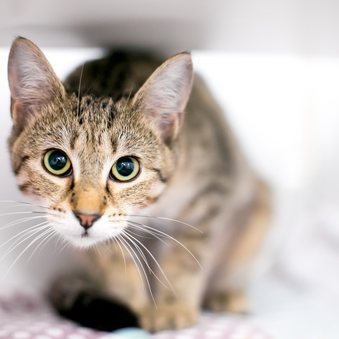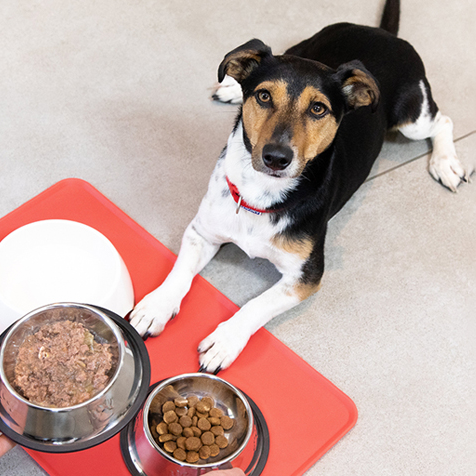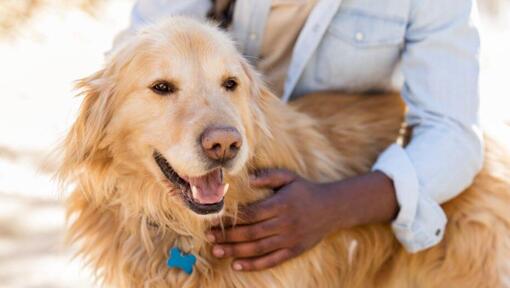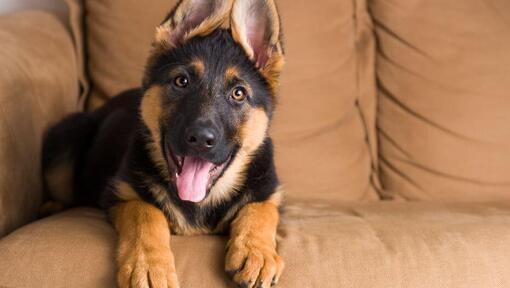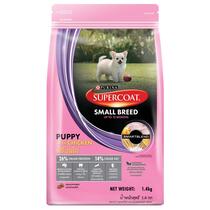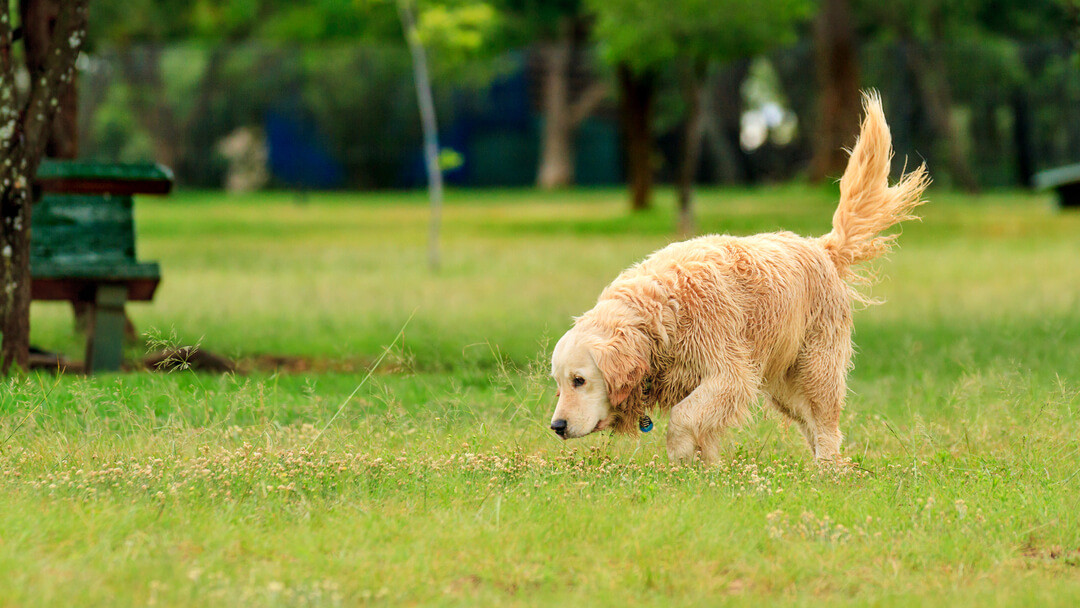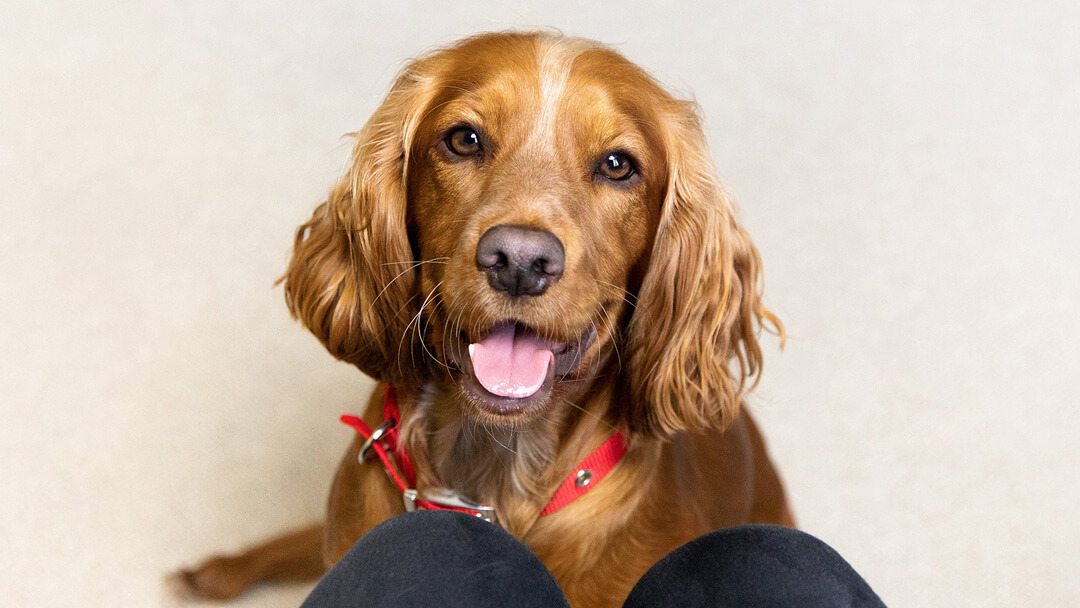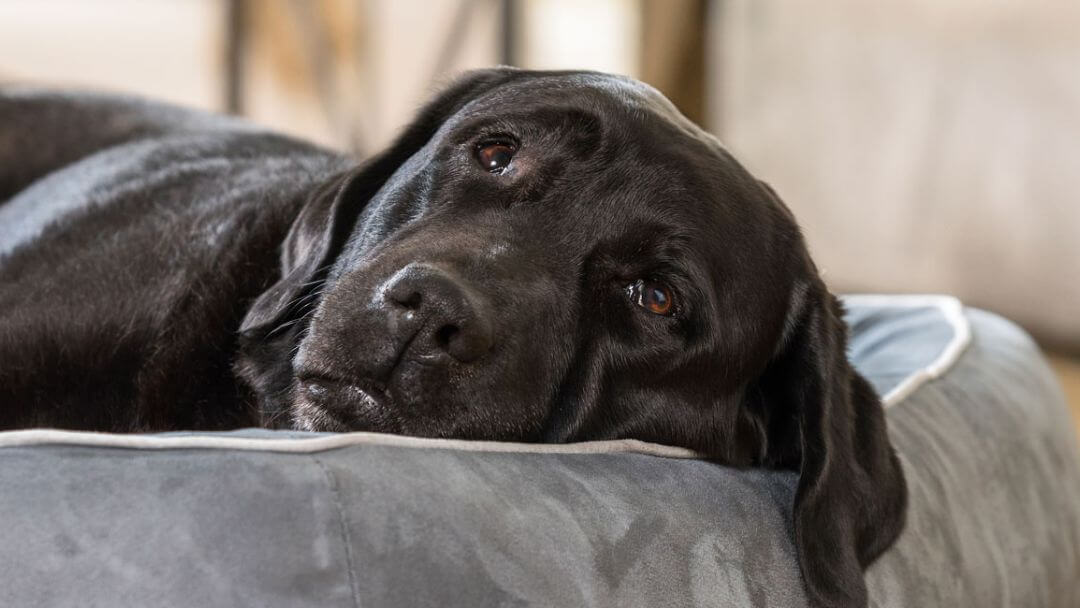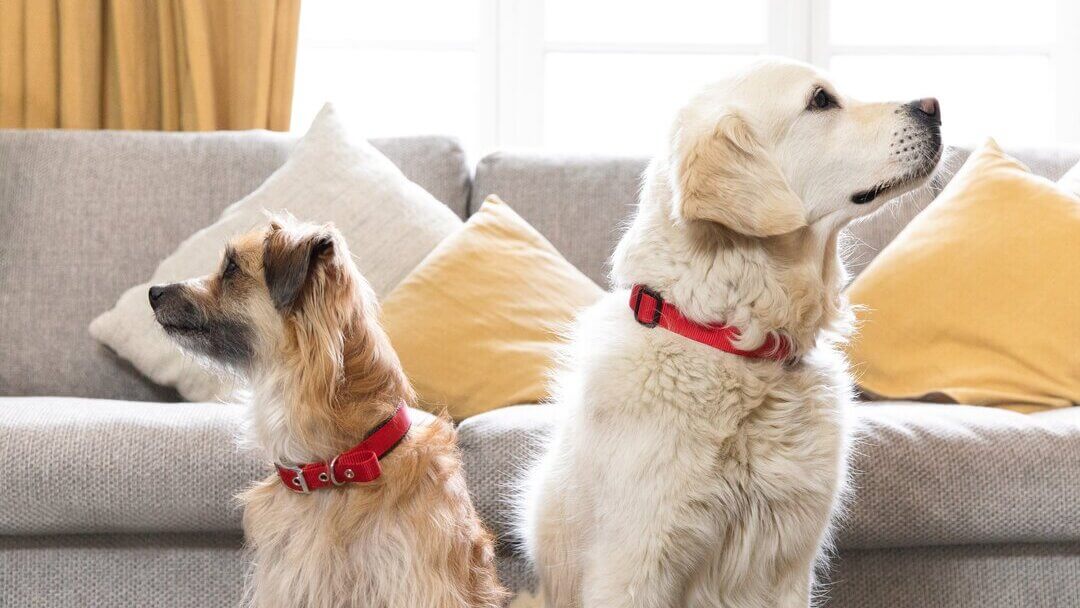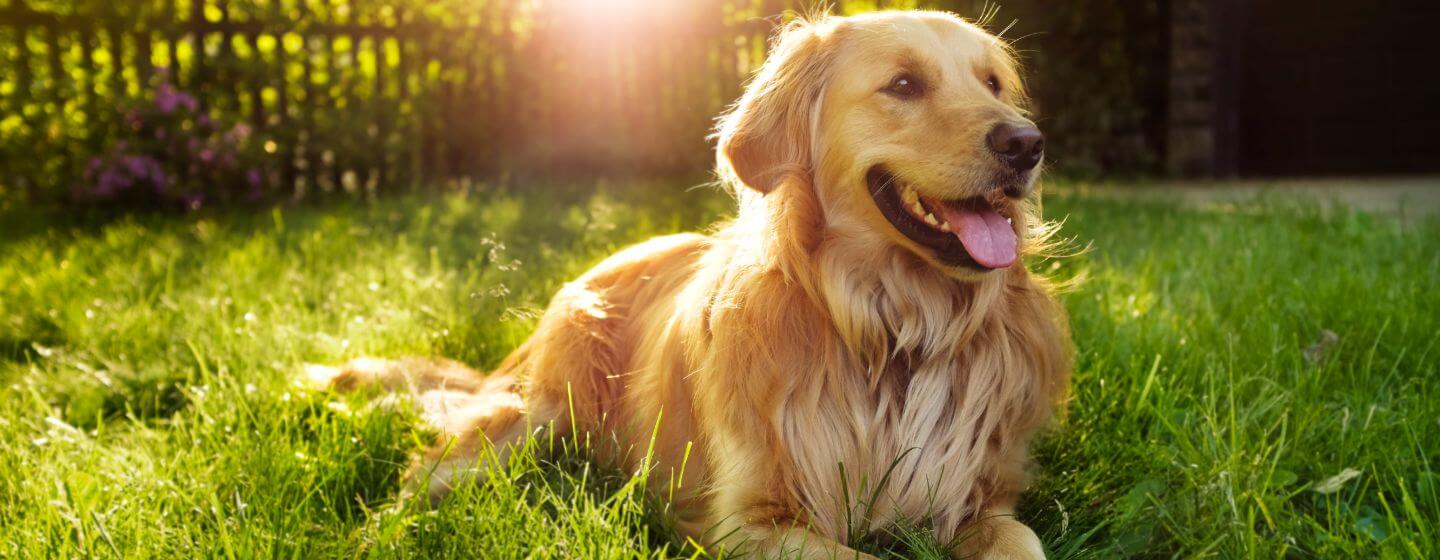
Our dogs pant all the time, especially after a good walk or a fun play session. However, when your dog's panting is paired with additional symptoms, it can be a sign of something more serious. Find out what you should be on the look out for with our guide.
Dog panting is a very common behaviour, often seen when your dog is cooling down on a hot day or after an exciting play session. Characterised as rapid, shallow breathing, usually coupled with a big lolling tongue, this behaviour is generally normal and nothing to worry about. However, there are some occasions when dog panting can indicate something more serious.
You may be wondering about the various reasons behind why dogs pant, so we’ve created this article about panting in dogs and the top reasons why your four-legged friend may do this.
Why do dogs pant?
When dogs pant, it usually means they are too hot and are trying to cool down. But there are other reasons why your dog may pant, which is why it’s always important to look at the overall situation and what the rest of your dog’s body language is telling you. Some of the most common reasons why dog’s pant are as follows:
Dogs pant to cool down
Unlike us, dogs can’t sweat through their skin to cool down because of their thick fur. While they can sweat a little through their paw pads, the amount this is able to cool them down is limited By panting, they quickly exchange hot air from their lungs with cool external air, which speeds the evaporation of water from their tongue, inside their mouth and upper respiratory tract. As this water evaporates it helps to regulate their body temperature, thus cooling them down effectively.
They’re feeling anxious or stressed
Dog’s may also pant when they’re feeling stressed or anxious. Termed ‘behavioural panting’ this type can usually be seen with some of the following symptoms alongside it: repetitive yawning, pacing, whining, licking lips, shaking or hiding. You may see this type of dog panting if your dog’s scared of fireworks, when they’re on car journeys or during visits to the vet.
Brachycephalic obstructive airway syndrome
If you have a brachycephalic dog breed with a flat face and shortened or squashed nose, such as a French Bulldog, Pug or Boxer, then your dog panting a lot may be due to ‘brachycephalic obstructive airway syndrome’ (BOAS). Because of their anatomy, these dogs suffer from ongoing breathing difficulties as a result of a narrowed upper respiratory tract. Additionally, they don’t pant as efficiently as other dogs because their faces are flat, making them much more at risk of heatstroke or overheating as they can’t cool themselves down quickly.
My dog is panting a lot – what does it mean?
If your dog’s panting a lot and they’re not warm and don’t need to cool their body down, it could indicate a larger problem. Additionally, if their pants sound louder or harsher or they appear to be exerting more effort than usual, you should seek veterinary attention immediately as it could be a sign of one of the following problems:
Heatstroke
Heatstroke in dogs can occur during the summer months, especially if they’re left in hot cars. If your dog has heatstroke, they’ll pant heavily and may appear to have difficulty breathing normally.
If you notice this you should move them out of the sun to somewhere cooler immediately. Other symptoms may also include excessive thirst, high body temperature, glazed eyes, fast heartbeat and dark or bright red tongue and/or gums.
The easiest ways to avoid heatstroke is by not taking your dog out in hot temperatures (so, for example, in the middle of summer ensure you walk your dog early or late in the day when it is cooler), never leaving your dog in a hot car and always taking water with you for your dog to drink.
Allergic reaction
If you’ve recently started giving your dog a new medication, occasionally this can result in an allergic reaction. If they’re experiencing an allergy to something, your dog may pant a lot if struggling to breathe, and may also be lethargic or vomit.
Respiratory problems
Dog panting can also be due to respiratory problems such as pneumonia. Pneumonia is the inflammation of the lungs or lower respiratory tract and is primarily caused by an infection. Other symptoms may include fever, difficulty breathing, lethargy and coughing.
Cushing’s disease
Cushing’s disease is caused by the adrenal glands releasing too much cortisol. Other symptoms may be present such as increased thirst, weight gain, thinning skin and hair and a pot belly.
Pain
Dogs can be exceptionally good a hiding pain, so much so that we often don’t discover that they’re in pain until much later. If your dog’s panting is due to pain this will usually displayed at odd times such as at night when they should be resting.
Obesity
If your dog is overweight, they may pant as they struggle to get fresh, oxygenated blood into their systems. If you suspect that your dog’s overweight, you should speak to your vet immediately as it can lead to more serious issues such as arthritis, heart failure and can also reduce their lifespan.
Heart problems
Heart problems can also cause your dog to pant a lot. Dogs with heart issues may pant consistently (even when not exercising) as they will struggle to catch their breath. Additionally, they may also cough and display a general weakness and tiredness.
My dog is panting at night – what does it mean?
If your dog’s panting at night and it’s not too hot in the room, it could be down to many things and you should take your dog to the vet for a diagnosis. It could be as a result of anxiety, particularly if your dog’s separated from you during the night, as they may feel stressed about being away from you.
Generally, this is quite rare in adult dogs and tends to only be of a concern with puppies. If you suspect your dog’s panting at night is due to anxiety, you could try leaving the radio on to provide them with some comfort and to block out some of the noise.
If your dog’s panting a lot when they’re not exercising or cooling down, or displaying other concerning symptoms, be sure to contact your vet immediately.
For more information on dog behaviour, take a look at our content hub.

